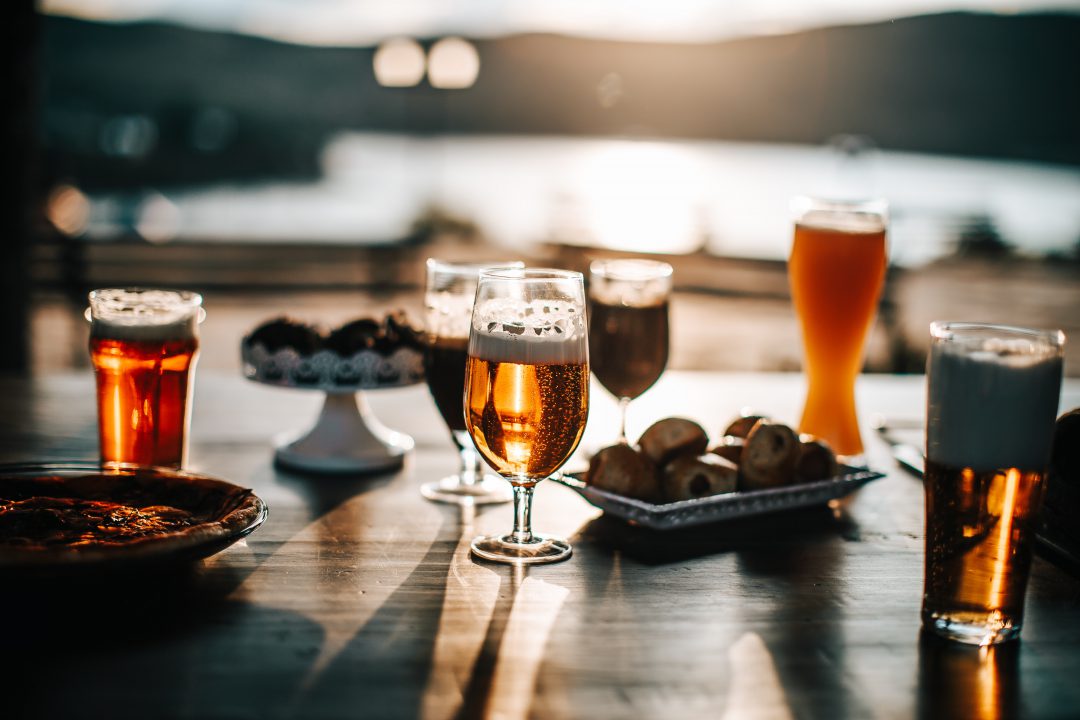By Chris Prentiss
It’s the drug, “Ethanol,” the intoxicating ingredient of alcoholic beverages. Ethanol and alcohol; two different names for the same thing. There are other types of alcohol, but ethanol is the only one you can drink. Ethanol is what we put in our gas tanks to drive our cars. Next time you put gas in your car, read what it says on the pumping station: “Contains ethanol.” It is also used as a solvent; a powerful chemical that is used to dissolve other substances. What happens if you drink ethanol without diluting it? Painful tissue damage and irritation occur. Strong ethanol is extremely harsh and will irritate and annoy soft tissues in your mouth, throat, esophagus, liver, and stomach. Even small quantities of pure ethanol will be extremely unpleasant and harmful. Can you survive it? Probably, but not without terrible and immediate consequences. Ethanol, in its pure form, must be diluted.
The “proof” of alcohol means that a 100-proof beverage is 50% ethanol and the rest water and some impurities leftover from the distilling process.
Cirrhosis of your liver is created by the scarring of your liver caused by the burning of liver cells from coming in contact with alcohol. Your liver can’t feel the burning sensation caused by alcohol, but If it could, no one would ever take a second drink. If you take a mouthful of 100 proof whiskey and swallow it, you will definitely feel the burning sensation. That’s why people mix whiskey or other alcoholic drinks with water or some other ingredient like soda or seltzer. It doesn’t make a difference to your liver whether you dilute your alcoholic drink or not; your liver will still get burned. Alcohol is classified as a depressant because it slows down the central nervous system, causing a decrease in motor coordination, reaction time and intellectual performance. At high doses, the respiratory system slows down drastically and can cause a coma or death.
It is particularly dangerous to mix alcohol with other depressants, such as GHB, Rohypnol, Ketamine, tranquilizers or sleeping pills. Combining depressants multiplies the effects of both drugs and can lead to memory loss, coma or death. Alcohol is a depressant, but not in the sense that it makes you feel depressed. It actually makes you feel exuberant, high, but it depresses (slows down) your nervous system.
Winemakers ferment grapes or other products like corn or potatoes to produce ethanol. Grape skins give the wine color. Manufacturers of alcoholic beverages dilute their ethanol with water and put in flavors, scent, and coloring. When you pop the cork in champagne, yeasts have fermented sugars and form carbon dioxide gas that produces bubbles. They give their beverages exotic names and they package them in beautiful, different shaped bottles with charming labels and elegant boxes. They spend billions on advertising to get you to use their products. What are they all selling? Ethanol. It’s what gives you the euphoric feeling of being high. That’s why you spend lots of money on their products. If you believe otherwise, take out the ethanol and see how much you will pay for the same product.
Used moderately, ethanol adds enjoyment to a meal, stimulates conversation, has a relaxing effect and lowers inhibitions. Used to excess ¾ eventually ¾ it kills; and, it’s a nasty death.
Our early ancestors began ingesting ethanol about eighty million years ago when they ate rotting fruit that had begun to ferment. We have been at it ever since. The difference now is that we know how to extract the ethanol and don’t need to eat the bugs and dirt our ancestors had to deal with.
The main problem with drinking alcoholic beverages, apart from that it burns your liver and lowers your good judgment, is that ethanol lowers your “stop” mechanism; your ability to say, “No,” and stop when you’ve had enough. Your good judgment is impaired, turning you into a person of poor judgment and a danger to yourself and anyone around you. You probably know through experience that alcohol lowers your inhibitions. You’ll do things and say things and make mistakes under the influence of alcohol that you wouldn’t while sober. In the same way that alcohol lowers your inhibitions, it lowers your ability to stop drinking. That’s why some people drink to black-out.
Alcohol was never a problem for me other than the fact that I would sometimes get drunk and do stupid things, like flying a plane or driving a car while intoxicated. However, about twenty years ago, after Pax stopped drinking and drugging, I stopped out of respect for Pax. That was one of the best decisions of my life. I developed a clarity over the years that has been a great enhancement in my life and it put me in control of my actions, using my best judgment all the time. I encourage you to do the same. The rewards are better than you can possibly imagine. Being sober is a natural part of life.
How to Contact Passages Addiction Treatment Centers:
Call Passages Addiction Treatment Centers today if you or a loved one is battling an addiction to drugs and alcohol. Our admissions department is available 24/7 and can be reached directly by calling our toll-free number at (888) 397-0112. We look forward to speaking with you soon.
